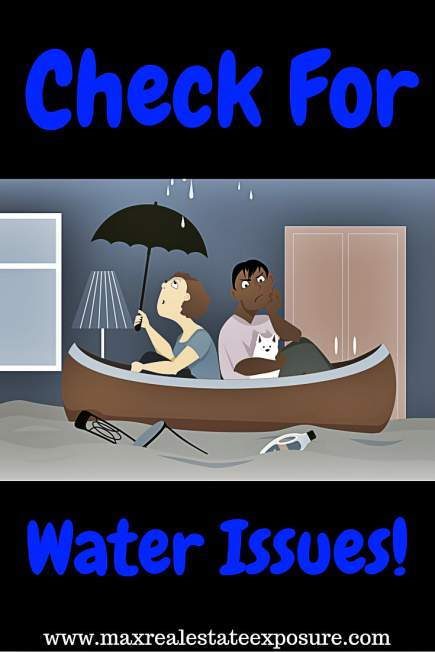What to Know When Buying a House
 What are the most important things to do before buying a house? You have probably asked yourself this question, and that’s why you’re here.
What are the most important things to do before buying a house? You have probably asked yourself this question, and that’s why you’re here.
Being informed is essential when making significant financial decisions; few financial choices are more considerable than buying a home.
Understanding how to buy a house will be crucial to your success.
Before committing to buying any property, take the time to educate yourself about what you are getting into.
The following twenty tips for buying a home are here to help you get started.
Buying a house is really simple to follow and worth your time and effort.
These twenty things to do before purchasing a house will put you in a position for a smooth transaction and a pleasant first-time home-buying experience.
1. Know Your Credit Score.
Your credit score is one of the most significant factors in your loan terms. Know your score before trying to get a loan, and take the time to repair it if it is lower than 700.
A good credit score that leads to a low-interest rate can save you tens of thousands of dollars over the loan’s life. See how to raise your credit score to get better loan terms.
Your credit score is one of the most important things to know before buying a house. You might have the needed credit score to buy a home, but increasing it as high as possible is worthwhile.
So many home buyers find themselves getting bad credit home loans because they have not tried to improve their scores.
2. Have a Lender Pre-Approve You Before Shopping.
Understanding how to get a mortgage includes reviewing the approval process before looking at homes.
What to do before buying a house includes getting pre-approved. It is one of the most critical steps in the home-buying process!
Pre-approval means you should be able to get the loan as long as nothing changes about your financial situation or your credit score.
A pre-approval letter also helps when you want to compete with another buyer for a home you love. One of the first things most sellers will ask their agent when receiving an offer is how qualified the buyer is to purchase.
Sellers want to feel comfortable knowing the buyer will not get turned down for the loan. A home buyer should understand the difference between a mortgage pre-approval and a pre-qualification. To get pre-approved, lenders will verify employment, income, and credit.
Often this is not the case with a pre-qualification.
3. Shop The Lender Before Getting a Mortgage.
While getting pre-approved for a mortgage is a significant step for a first-time buyer, shopping for the best deal is possible. You will probably be paying the mortgage for a while, so getting the lowest mortgage rate should be one of your prime considerations.
Be sure to look at the annual percentage rate you are paying (commonly referred to as the APR) to compare apples to apples. With some loans, you may pay more points or have higher closing costs than others.
So when shopping for the best mortgage, don’t just look at the rate but the whole package. Going to one lender is a significant first-time home buyer mistake.
Many first-time buyer programs should be carefully reviewed before committing to a loan.
4. Know Every Expense Before Buying a House.
One of the more vital steps to buying a house is knowing the ultimate cost when all is said and done. There are a lot of fees that come with a home purchase above and beyond the mortgage.
Insurance, repairs, association fees, property taxes – you should have the income and the budget to handle all of these things if they are relevant to your purchase.
Real Estate agents always discuss additional expenses to consider when buying a home. The article covers seven costs buyers often forget about. You should also have some savings to cover emergencies with the house.
Before buying a home, you should be comfortable with all the associated expenses, not just the mortgage payment.
5. Know What You Want Before Buying a House.
Do you want a home or a condo? For many first-time home buyers, this is one of the first dilemmas they will try to solve. Many buyers will look at both because they can’t decide.
To make sound decisions, you should know the pros and cons of a condo vs. a house. More buyers will end up disappointed when picking a condo because they do not understand the ramifications of how restrictive they can be or how quickly fees can change.
Of course, the appeal is usually for those buyers who do not have time for home maintenance.
After the excitement of buying the home passes, you will have to live in it for years. Make sure you shop for a home that will meet your needs and lifestyle.
More space is not always better. Lawns require upkeep. Being close to what you like may be more important than you realize.
Understand you are not just buying a home but a location as well. One of the key considerations that many buyers miss when purchasing a home is knowing how to pick a neighborhood they will love. Often first-time buyers focus too much on the house and not enough on the area.
6. Work With a Skilled Realtor That Knows Your Area.
 Every neighborhood has unique qualities you want to be aware of before buying.
Every neighborhood has unique qualities you want to be aware of before buying.
A well-informed Realtor will also know what homes are worth, which will help you avoid overpaying for a property.
Here is an example of my real estate agent’s Ashland, MA, community guide. It should be pretty clear from the guide that I understand what Ashland offers from both a housing and community perspective.
You want a real estate agent who knows their stuff locally!
Make sure you interview several different buyers’ real estate agents. Choose someone full-time working in the business daily with a recent history of successful sales.
The better the real estate agent knows the area, the better equipped they will be to understand the differences in market value from one property to the next.
Picking the right Realtor is a step to buying a house that should not be overlooked. Those that do usually end up disappointed.
7. Understand The Actual Value of Any Property You Are Buying.
Working with a real estate agent who understands market values in your area is critical to avoid overpaying for your house.
In addition to the actual purchase price, other fees like appraisal and inspections can cost you more when you don’t understand the home’s value.
Should you ask about adjusting the price later, sellers and banks may not be flexible. Ensure that your buyer’s agent provides a comparative market analysis justifying what you offer the seller.
8. Buy What You Are Comfortable Paying For.
Another critical thing to know when buying a house is what you’ll be comfortable paying. You may be cleared for a loan far above your willingness to pay. Have caution and mortgage only as much money as you are satisfied with.
Many home buyers will mortgage themselves to the hilt only to find out later they are a slave to their home. Don’t stretch beyond your means unless you want to eat spaghetti dinners at home every weekend.
9. Verify All Information in The Listing.
Another crucial thing to do before buying a house is to make sure the house listing is accurate. It would be best to verify that all the information about the home is suitable.
Sometimes real estate agents put things in the listing that they may not have verified or may be unaware of the facts.
Some of the more common issues that can crop up in a real estate transaction are understanding what stays with a home and what doesn’t. Many buyers, sellers, and even real estate agents do not know what is considered a fixture and personal property.
10. Try to See Yourself in The Home.
Sometimes when you view a home, it will be filled to the brim with the current owner’s things. Learning to see past the clutter to the home’s potential for you may allow you to find better deals than you would otherwise.
This is why real estate agents often recommend to seller clients to clear all the clutter before listing their homes for sale.
Cluttered homes can sell for less money when those lacking vision can’t see past them.
11. Use a Reputable Home Inspector.
 Find a home inspector from the American Society of Home Inspectors or someone your real estate agent knows and trusts.
Find a home inspector from the American Society of Home Inspectors or someone your real estate agent knows and trusts.
You want someone who knows what they are doing and is not motivated to miss issues to encourage a sale.
It is also advisable to find your inspector if you do not know your real estate agent well. The last thing you need is a real estate agent recommending you use their favorite home inspector because they are not that thorough.
While most real estate agents are honest, there are always a few bad apples in any industry you must look out for.
Remember that the home inspection is one of the most vital aspects of buying a home. You will want to have someone performing it who is thorough and complete.
12. Make Sure All Renovations Are Up to Code and Permitted.
If a renovation had been done without a permit, it might not have been done right. No permit means that the work was not reviewed by an inspector, something you do not want in your new home.
You might wonder why a seller would not get a permit for work done on their home. There are usually three reasons for this:
- By obtaining a permit for an addition, you will pay more taxes because your assessed value will go up with a larger home.
- It costs money to get permits. When you add an addition or finish a basement, you typically pay for licenses for electrical, plumbing, and the general building inspector. Many owners don’t want to bother paying the fees.
- Pure laziness. This is a sad excuse, but that is what happens with some people who don’t want to take the time out of their day to get permits for work.
Buying a home without necessary building permits will become your issue in the future when you go to sell. It would help if you asked the seller to take care of the permits before buying the home.
Learning if the permitting process was followed correctly is a vital thing to know before buying a house. You don’t want to be stuck with a previous owner’s issues.
Unpermitted work when buying a house is a pain in the neck, but it’s better to take care of it now than when you go to sell.
13. Be Sure You Understand Any HOA You Will Be Part Of.
Some homes are part of a homeowner association. All condominiums have HOAs. These organizations are mandatory if you live in the area, so you must pay dues and rely on the association to care for certain things, like maintaining common areas.
Some homeowners associations are great; some are not. Know what you are getting into before purchasing in a neighborhood with an HOA.
One of the best ways to find out is by asking a few people living there.
14. Look For Any Water-Related Problems Before Buying.
 A home in good condition will keep water where it belongs. Exterior moisture should not be making its way inside. Water flowing through the pipes should stay in those pipes.
A home in good condition will keep water where it belongs. Exterior moisture should not be making its way inside. Water flowing through the pipes should stay in those pipes.
Any precipitation that falls on and around the property should be directed towards safe areas, like away from your foundation. Your roof should be functioning as intended.
Buying somebody’s water issues is not what you want. Water issues have a direct correlation to market value, as well as marketability.
15. Have a Professional Look For Asbestos, Mold, and Radon.
Asbestos
Asbestos was a major building material up until around 1977.
Before you buy a home, you should be aware of the presence of asbestos because it can drive up the cost of repairs and renovations while driving down the resale value.
If you plan on doing any repair work yourself, it is crucial that you know of asbestos and take proper precautions if it is present. For obvious reasons, understanding if there is asbestos is something to know before buying a home.
Mold
Mold is one of the scariest issues with home buyers today, and with good reason, as it can cause health problems. If you have any respiratory problems, mold in a home can make them far worse.
Mold can be fixed when buying a home; know what you are getting into. Any necessary mold remediation should be taken care of by the seller.
Radon
Radon is an invisible, odorless gas that can be found both in the air and the water. Getting rid of mold in the air is easy and relatively inexpensive.
Removing radon from water, on the other hand, is much more expensive. On average, the cost to remove radon from the air is around $1000-1300, depending on where you live. Removing radon from water is more like $4000-$7000.
16. Make Sure The Electrical System is Up to Par.
Current building codes require modern electrical wiring. Most homes built before the 1930s are not up to standard unless they have been renovated.
These old homes use knob and tube wiring, which can be expensive to bring up to code.
Remember that many lenders and insurance companies will not work with a buyer if the home has knob and tube wiring due to the hazards it creates.
17. Know Your Furniture Plan Before Purchasing.
If you like your furniture, you will want to bring it. Make sure your new home can accommodate it. Or, if you plan on buying new furniture, you’ll want to purchase a home at a price that leaves you with enough left over to furnish it.
This relates to item #8 – understand there will be additional expenses with owning a home.
18. Don’t Stress About The Wall Colors and Carpet Condition.
 Many buyers don’t have a vision when looking at homes.
Many buyers don’t have a vision when looking at homes.
As crazy as it sounds, some customers will turn down a home that meets all the criteria they seek because they can’t see past the ugly mauve carpeting and the purple and green wall colors.
This is a mistake I see quite a bit. One of the easiest things to change about a home is the color of the walls.
Paint is inexpensive and can be applied by you after you buy. The same holds for carpets.
While it is always wise for a seller to spend the money to neutralize a home before it goes on the market, that doesn’t mean you should pass on it!
19. Don’t Do Anything to Affect Your Financial Situation.
Your pre-approval is based on the information given during your application.
Any changes, like getting a different job or taking out a car loan, can result in denial of the loan request when purchasing a house.
While I like to educate all my buyers on making large purchases while buying a home, many do not.
Making a large purchase is not a prudent thing to do when buying a home. This is one of the primary reasons buyers can be denied a mortgage after being pre-approved. This is not a pleasant experience!
20. Know The Potential Growth of Your Investment.
Buying a fixer-upper in an area that is growing more popular offers the possibility of an increase in the value of your home. In contrast, buying the nicest house in the neighborhood may not have much upside.
Consult with your real estate agent and ask their opinion on the prospects for profit if the general area continues to rise in value. Will the home lag the market or be a stalwart? If the return on investment is necessary, this is undoubtedly something you should find out.
As you can see, knowing what to do before buying a house is critical. Follow all these steps for purchasing a home and increase your odds of a successful transaction.
Final Thoughts on What to Do Before Buying a House
To be happy, you should be familiar with many things before buying a home. Do your homework carefully. Due diligence is critical, especially when buying your first house.
Hopefully, you have found these twenty things to know when buying a home to be helpful.
Additional Helpful Home Buying Articles
- How to buy a home from start to finish – get some sound advice on what you should know before buying a house. You will see a detailed road map for making a home purchase so you minimize any potential mistakes.
- What kind of homes works with what mortgages – did you know that some mortgage loans work better than others? It’s true. See what loans might work well with the type of house you wish to purchase.
- Ten big mistakes home buyers make – see some of the biggest blunders buyers make when purchasing their first home.
- How to purchase your first house – buying your first house is exciting, and easy to make mistakes in judgment. See some great tips for buying your first home.
Use these additional resources to make sound decisions when buying a home. I hope these 20 things to do before purchasing a house have helped!
About the Author: The above Real Estate information on the 20 things to do before buying a house was provided by Bill Gassett, a Nationally recognized leader in his field. Bill can be reached via email at billgassett@remaxexec.com or by phone at 508-625-0191. Bill has helped people move in and out of Metrowest towns for the last 37+ Years.
Are you thinking of selling your home? I am passionate about Real Estate and love sharing my marketing expertise!
I service Real Estate Sales in the following Metrowest MA towns: Ashland, Bellingham, Douglas, Framingham, Franklin, Grafton, Holliston, Hopkinton, Hopedale, Medway, Mendon, Milford, Millbury, Millville, Northborough, Northbridge, Shrewsbury, Southborough, Sutton, Wayland, Westborough, Whitinsville, Worcester, Upton, and Uxbridge MA.

